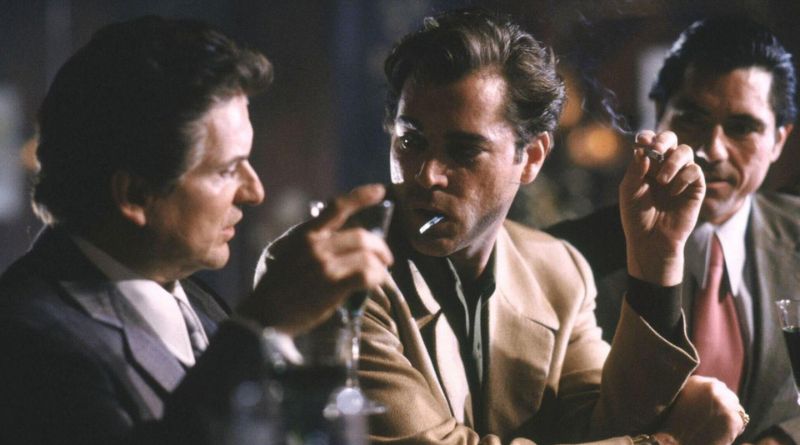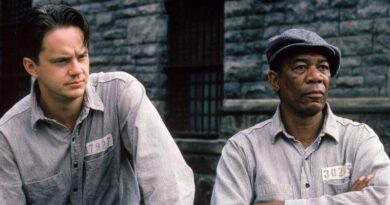Gangster Movies Of All Time – Defining a remarkable gangster movie is akin to unraveling the intricacies of a complex narrative woven through the cinematic tapestry. Is it the unfiltered depiction of criminal underworlds that captures our fascination, the enthralling performances that breathe life into characters, or the unforgettable dialogues that echo in our minds for years? In this exploration of the finest gangster films, we embark on a journey that goes beyond mere storytelling, delving into the very essence of cinematic artistry that transcends conventional boundaries.
The soul of a great gangster movie lies in its ability to paint a raw and authentic portrait of the criminal underworld. It’s about peeling back the layers of societal norms and exposing the gritty realities that lurk in the shadows. These films immerse audiences in a world where morality blurs, and the pursuit of power and survival takes center stage. The raw portrayal of this underworld serves as a mirror reflecting the darker facets of human nature, forcing viewers to confront the complexities of morality and choice.
The Top 9 Gangster Movies Of All Time
The Godfather (1972) –
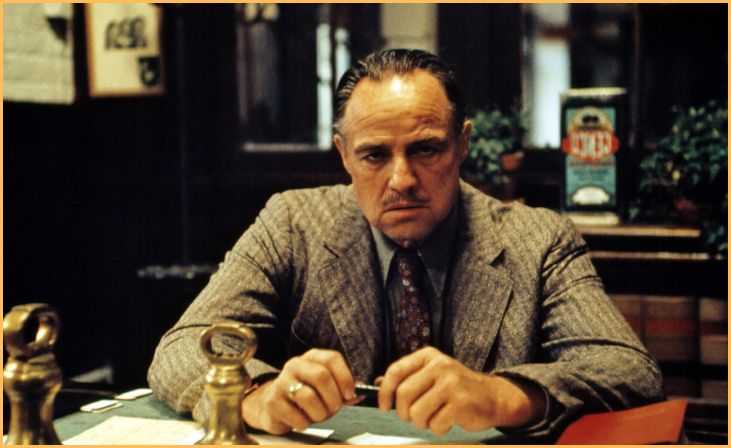
Francis Ford Coppola’s “The Godfather” is a cinematic masterpiece that chronicles the Corleone family’s saga. Marlon Brando’s portrayal of Vito Corleone, the patriarch, is iconic. The film delves into themes of power, family, and betrayal against the backdrop of the organized crime world. Al Pacino’s transformation as Michael Corleone, from a reluctant outsider to a ruthless leader, is captivating. The film’s rich narrative, memorable quotes, and stunning cinematography make it a timeless classic.
Also Read:- Best Russell Crowe Movies
Goodfellas (1990) –
Martin Scorsese’s “Goodfellas” is a gritty portrayal of the mob lifestyle, based on the life of Henry Hill. Ray Liotta, Robert De Niro, and Joe Pesci deliver unforgettable performances. The film’s use of voiceover narration, stylish editing, and a killer soundtrack contribute to its intense and immersive storytelling. Pesci’s Oscar-winning role as the volatile Tommy DeVito is particularly memorable.
Scarface (1983) –
Brian De Palma’s “Scarface” is a visceral exploration of the American Dream gone awry. Al Pacino’s portrayal of Tony Montana, a Cuban immigrant turned drug lord, is iconic. The film’s over-the-top violence and memorable quotes, especially Tony’s catchphrase “Say hello to my little friend,” have become cultural touchstones.
The Departed (2006) –
Martin Scorsese’s “The Departed” is a gripping tale of deception and loyalty within the Massachusetts State Police and the Irish mob. Leonardo DiCaprio, Matt Damon, and Jack Nicholson deliver stellar performances. The film’s intense cat-and-mouse game, unpredictable twists, and sharp dialogue make it a modern classic.
Pulp Fiction (1994) –
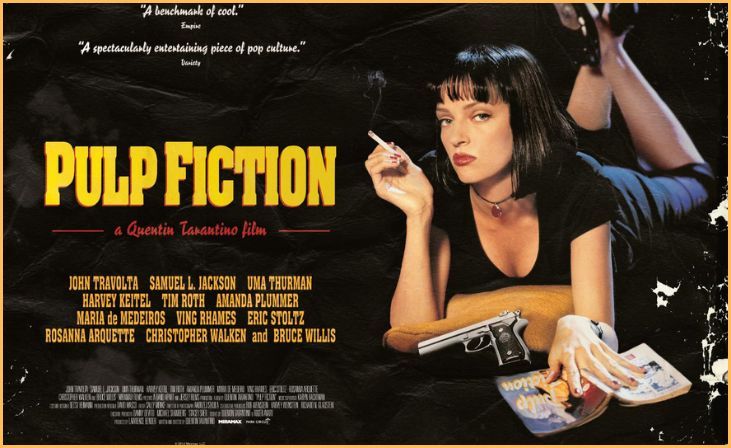
Quentin Tarantino’s “Pulp Fiction” is a groundbreaking film with its non-linear narrative and interconnected stories. The film weaves together crime, humor, and pop culture references, creating a unique cinematic experience. The memorable characters, including hitmen Vincent Vega (John Travolta) and Jules Winnfield (Samuel L. Jackson), and the iconic dance scene at Jack Rabbit Slim’s, contribute to its cultural impact.
Casino (1995) –
Martin Scorsese returns to the crime genre with “Casino,” a gripping tale set in the glitzy and dangerous world of Las Vegas casinos. Robert De Niro stars as Sam “Ace” Rothstein, a meticulous casino manager with ties to organized crime. The film explores the rise and fall of Rothstein, intertwined with the tumultuous relationship with his enigmatic wife, Ginger, played by Sharon Stone. Joe Pesci, once again, delivers a compelling performance as Nicky Santoro, a volatile and ruthless mobster. The movie’s detailed portrayal of the inner workings of the casino industry, the corruption, and the consequences of unchecked power make it a captivating watch.
The Untouchables (1987) –
Brian De Palma’s “The Untouchables” brings the Prohibition-era Chicago to life as it chronicles the pursuit of notorious gangster Al Capone by law enforcement. Kevin Costner stars as Eliot Ness, the leader of the Untouchables, a group of incorruptible agents determined to bring down Capone. Sean Connery, in an Academy Award-winning role, plays the seasoned cop Jim Malone. The film’s tense and dramatic sequences, including the iconic “baby carriage” staircase scene, showcase De Palma’s directorial prowess.
Once Upon a Time in America (1984) –
Sergio Leone’s “Once Upon a Time in America” is an epic crime drama that spans several decades, exploring the lives of Jewish gangsters in New York City. The film follows the friendship between David “Noodles” Aaronson, played by Robert De Niro, and Max, played by James Woods, as they navigate the complex world of organized crime. Leone’s masterful storytelling, coupled with Ennio Morricone’s haunting score, creates a cinematic experience that is both sweeping and intimate. The film’s non-linear narrative adds layers to the characters, making it a rich and contemplative exploration of friendship, betrayal, and the passage of time.
Also Read:- Angelina Jolie’s Best Movies
Lock, Stock and Two Smoking Barrels (1998) –
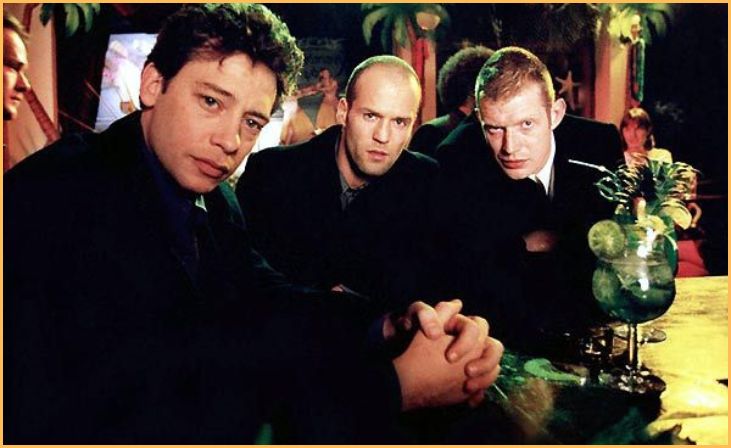
Guy Ritchie’s directorial debut, “Lock, Stock and Two Smoking Barrels,” is a fast-paced and humorous British crime comedy. The film follows a group of friends who find themselves entangled in the London criminal underworld after a high-stakes card game goes awry. Ritchie’s signature style, characterized by sharp dialogue, eccentric characters, and clever narrative twists, shines in this film. The ensemble cast, including Jason Statham and Vinnie Jones, delivers memorable performances. “Lock, Stock and Two Smoking Barrels” is a kinetic and entertaining ride that established Ritchie as a filmmaker with a unique voice in the crime genre.
Conclusion
In summary, the enchantment of gangster movies resides in their unique capacity to whisk audiences away into the gritty and shadowy realms of the underworld. These cinematic masterpieces serve as more than mere sources of entertainment; they act as conduits offering profound insights into the intricate complexities of human nature. As we unveil the crème de la crème of the top 9 gangster movies of all time, it becomes increasingly apparent that their influence transcends the boundaries of mere entertainment, leaving an indelible mark on the broader landscape of culture and storytelling.
The allure of gangster films lies not just in their ability to captivate audiences with riveting narratives but also in their adeptness at providing a nuanced understanding of the multifaceted dimensions of human behavior. Through the lens of organized crime, these movies delve deep into the human psyche, unraveling the intricacies of morality, power dynamics, and the perpetual struggle between good and evil. It is within the morally ambiguous and morally bankrupt landscapes of these narratives that viewers find themselves not only entertained but also compelled to reflect on the shades of gray that characterize the human experience.
FAQs
As of now, several upcoming gangster movies are generating buzz in the film industry. Keep an eye on announcements from renowned directors and studios for the latest releases that promise to continue the legacy of compelling narratives within the gangster genre.
While it’s crucial to acknowledge that movies are a form of entertainment and fiction, there have been debates about the potential influence of gangster movies on real-life crime. Studies suggest that media can shape perceptions, but it’s essential to differentiate between fiction and reality. Most filmmakers aim to tell compelling stories rather than promote criminal behavior.

